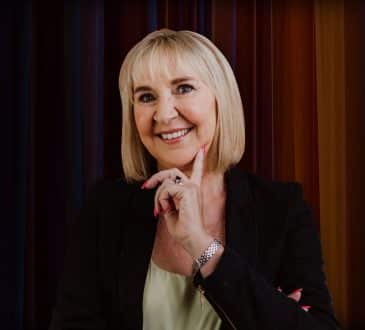Helping Others Succeed: Obligation or Opportunity?

Success can feel like an ambiguous and moving concept until you achieve it. Equally varied are the different definitions of what it means to have success. It can mean receiving a promotion, pivoting into a new industry, finally being able to take extended vacations or building a sustainable business and stepping into entrepreneurship.
Whatever your definition of success, people inevitably recognize you for it and ask the question: “What is your advice to others looking to do the same?”
As common as this question is, it can be daunting to answer. There are many perspectives to consider when giving advice, especially when it is in the context of your accomplishments and experiences. Do you speak to the broadest audience? Do you highlight a relatable struggle? Do you speak to those who share your roots? How do you balance the pros and the cons of your experience in a succinct and value-adding response?
Balancing the audience’s expectations
To dive into these questions, I would like for us to take a step back and consider what happens when you “achieve success” or step into high-level responsibilities. There are many assumptions that come with this label. People might feel that you know everything about your lane of expertise. There may be expectations to be grateful for the struggles you encountered. And finally, people might assume that it was your dream all along and if given the chance you would do it again.
In short, there can be an expectation to tell your story in the brightest, most optimistic light for the sake of inspiring others. This is a lot of pressure. What if you lost things along the way that you regret? What if it was the hardest thing you ever did and something you would be willing to give up or change? And finally, the pressure to have all the answers, despite your success, can be overwhelming.
In addition to these challenges, consider how identity might play a role in these reflections. Anyone entering a new space likely experiences imposter syndrome, but for those of marginalized identities, there can be another layer of pressure that comes along with those aforementioned questions. When you have been the only woman, or person of color, or queer individual in your position it can feel as though your unique position comes with a responsibility to pass the baton in some capacity. There can be a burden as you balance the desire to inspire and empower with the need to share the truths of your experience – the good, bad, and the ugly.
In many ways, leaders of varied backgrounds might feel that their successes belong to a community that expects something from them. That community could be their small hometown, other former athletes who want to make the same pivot into business, or stay-at-home moms who have been inspired to jump into entrepreneurship.
While these can be difficult expectations to uphold, I want to offer a different perspective in relation to these pressures. As leaders and innovators, we know that almost nothing can be achieved on our own. If you have built a business, lead a business or have worked on a team of any kind, you know this to be true. A business is only as strong as the individuals who work to build it every day, and individual leaders are no different.
From the impact of educators, mentors, and family members to industry peers and non-industry motivators, many people play a role in the molding of a successful individual. Regardless of the destination, the contributions of others along the way is one that is worth recognizing. The modern world can make that feel like a lost concept in some ways.
Giving back, developing future leaders
We live in a world where social media is rampant. Comparison drives conversation, individual credit seems vital to proving or justifying success, and the idea of asking for or needing help seems to take a back seat. Such individualistic perspectives might make giving to others seem burdensome, but more than that it misrepresents how our society functions.
The history of the world has shown that progress and evolution went hand in hand with globalization, cross-cultural connections and community building. In times of crisis we see people and neighbors coming together seeking comfort, refuge and support. The thing is, we don’t only need these things in times of crisis. Building together and making a contribution benefits not just organizations but communities and individuals as well.
When leaders give back, they become part of building a stronger system within an organization. From developing future leaders to cultivating innovative and collaborative teams, when successful individuals help others, they can impact the growth potential and legacy of an organization. In fact, developing the next generation of leaders is the top challenge for 55% of CEOs according to a 2022 Deloitte survey. Beyond the organizational level, helping others widens access to resources and can catapult those in your social network to achieve the things they desire. From sharing the unspoken rules of the workplace to giving tips on the inner workings of corporate environments, giving back with your time can present incredible benefits to your family, friends, and others in your community.
Finally, there are benefits to you as an individual. Helping others work through challenges you have overcome can give you the chance to build connections with others, learn new perspectives from their experiences, and develop your communication and executive presence by providing you with low-risk opportunities to teach and lead.
For generations, the most senior individuals in society are seen as wise and sources of perspective. As they look back, their role evolves from contributing to society by “doing” to contributing to society by cultivating, connecting and passing value along to the next generation. In return, the youth provide a vision for the much further future to share in.
As romanticized as that metaphor may seem, it mirrors much of how we can choose to show up at work and in our careers as leaders. Giving back and paying it forward shouldn’t feel like a burden; rather, it should feel like an opportunity to lift as we climb. With appropriate boundaries and intentional alignment with your goals, helping others doesn’t have to deplete you; rather, it can fuel the vision for your next goal.
Remember, you have agency in how you use your experiences to help others. It might be a book, it might be public speaking, or it might mean willing to take on three mentees a year and focusing on them instead of being spread thin. The more you view it as an opportunity for your own development, the less it has to be an obligation to fulfill. Muhammad Ali once said, “Service to others is the rent you pay for your room here on earth.” And while there are many ways to show gratitude for your success, each of them are up to you to align with your needs, wants and perspectives. her historically marginalized groups. A sought-after speaker and consultant, Washington also has written The Necessary Journey: Making Real Progress on Equity and Inclusion. Prior to founding Ellavate, she led Gallup’s diversity and inclusion practice and served as the co-host of Gallup’s Center of Black Voices Cultural Competence podcast.
Written by Dr. Ella F. Washington.
Have you read?
Jack Truong Says Companies Need To Do This for a Profitable, Sustainable Business.
Cultivating Collective Intelligence.
Recommended Books on Principled Leadership.
How to verify if entrepreneurial firms harness foresightedness- The tool kit.
Maximizing Executive Productivity May Require Remote Policies.
Bring the best of the CEOWORLD magazine's global journalism to audiences in the United States and around the world. - Add CEOWORLD magazine to your Google News feed.
Follow CEOWORLD magazine headlines on: Google News, LinkedIn, Twitter, and Facebook.
Copyright 2025 The CEOWORLD magazine. All rights reserved. This material (and any extract from it) must not be copied, redistributed or placed on any website, without CEOWORLD magazine' prior written consent. For media queries, please contact: info@ceoworld.biz











